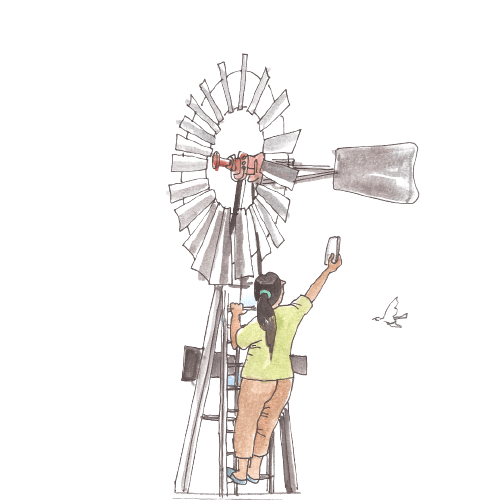La Via Campesina: “Artists for Food Sovereignty” Virtual Gallery
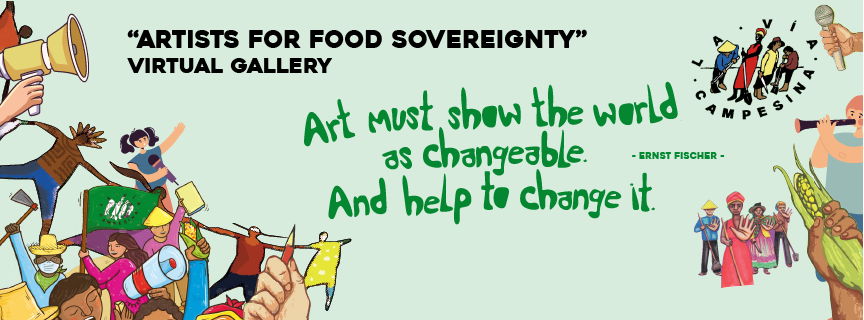
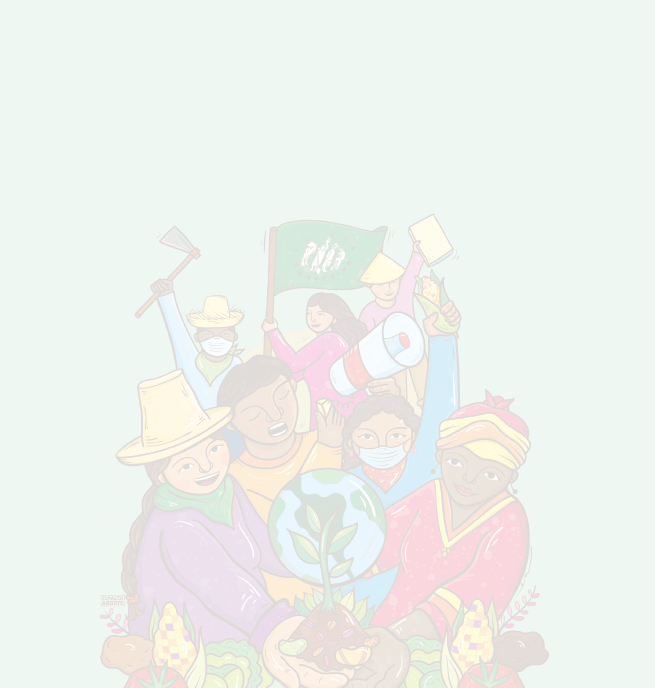
La Via Campesina (LVC) is celebrating 30 years of collective struggles for justice, peace, life, and dignity. On this anniversary, we are presenting a virtual gallery titled “Artists for Food Sovereignty.” It is an exhibition capturing the activism, solidarity, and commitment of 22 artists from different countries and organizations around the world, whose works have been selected and curated following the international call for submissions put out by the movement in August and September 2021.
The many ongoing activities and mobilizations for food sovereignty, peoples’ agrarian reform, and peasant dignity serve as sources of inspiration and reflection for the artistic and activist creations presented in this gallery in formats such as songs, poems, video, paintings, puppetry, podcasts, and illustrations.
For LVC, communication and art are important tools for expression, training, memory, exchange, and resistance among the peasant and Indigenous cultures of the world. In this gallery, we present our struggles and reflections on food sovereignty, peoples’ agrarian reform, peasant agroecology, native seeds, women, and diverse peoples, along with the works provided by the artists. These are accompanied by teachers’ guides that can help you build awareness and organize to transform our lives. We hope the exhibition will motivate you to build new horizons and other paths based on solidarity, internationalism, education, and popular culture.
Globalize the struggle, globalize hope! Get out some paper, pen, colored pencils, and a headset microphone if you have one.
You can visit this gallery in a group or by yourself. You can also become an “exhibition guide” by sharing it with your community, organization, or region. The works exhibited are open-source and can be downloaded to your phone or PC.©

“Food sovereignty is the struggle for land, water, and seeds; it is the struggle for life.”
For 26 years, La Via Campesina has been promoting food sovereignty as the collective right of peoples to define their own food policies and systems. Who farms? What do they farm? What do they grow? With whom do they grow it? And it is also the right of eaters to know what they are eating, who grew it, where it came from, how it was grown, and under what conditions. In the illustrations below, MNCI-Somos Tierra activist and illustrator Carlos Julio Sanchez asks and answers these questions in pictures.


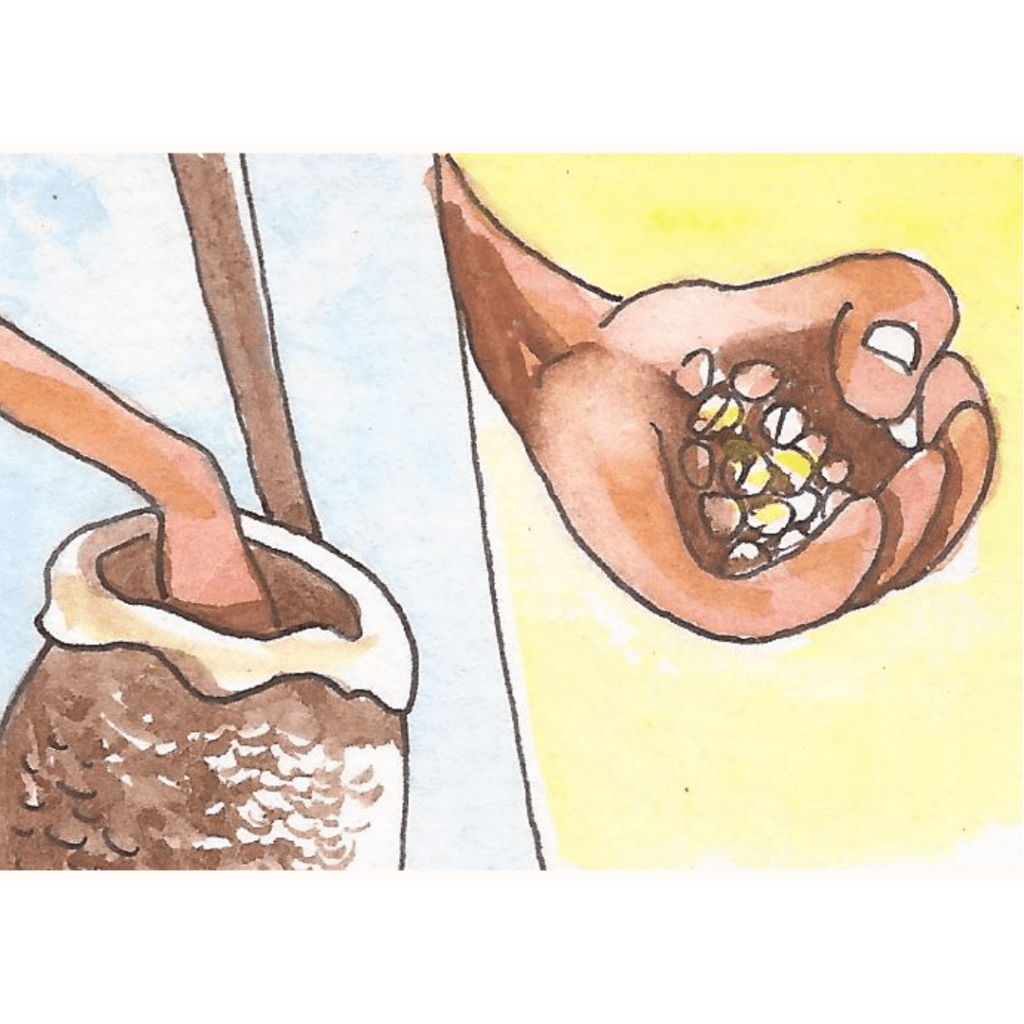




Capitalism separates us, peasant agriculture unites us!
Neoliberal policies and capitalism are destroying the planet and undermining food sovereignty. They prioritize international trade to the detriment of peoples’ right to healthy food. They have done absolutely nothing to eradicate hunger. On the contrary, they have increased countries’ dependency on agricultural imports; the industrialization of large-scale agriculture; an alarming pattern of land grabbing and forced displacement; and intensive use of agrotoxins and GMOs. All this is endangering the human species and life on the planet.






Thanks to our struggles and collective action as La Via Campesina over the last 30 years, some governments and global governance institutions have come to acknowledge the centrality of peoples’ food sovereignty to public policy-making and issued International Declarations such as the United Nations Declaration on the Rights of Peasants (UNDROP), adopted in 2018. For the full realization of the rights of peasants and others working in rural areas, we must coordinate and organize the movement at the community, national, regional, and global levels.




“In city and country, we must organize. We must return to the countryside where we can plant dignity and harvest hope and solidarity.”
Perla Álvarez, Cloc-LVC South America
What does a world of peasants’ rights and food sovereignty look like?
Aryo Fieldman of the UK-based organization Table Companions, in a podcast with his friend Lucas Worsdell, tells stories of his encounters with Latin American and European farmers while doing research on peasant agroecology. From Coca-Cola trucks taking the place of food sovereignty in Canada to heritage seeds in Italy and the doors they open to a better food system, Fieldman bases much of his optimism on the space opened up by peasant agroecology for ideas of rural territoriality and scenarios of the future.

Through interviews with committed food sovereignty activists such as Jyoti Fernandes of the Landworkers’ Alliance (LVC member in the UK), in Frontline Food, Georgie Styles explores food at the intersections of art, activism, politics, culture, and the pressing problems of our day.
Beyond COVID, what does real food system resilience look like?

In search of untold stories of colonialism and industrialization, indigenous wisdom, and the food sovereignty movement, Georgie delves into the relationships between food, agriculture, health, and the recent coronavirus pandemic.

Land is not a commodity! Land must be defended!
Imagine this: Somebody comes to your house one day and tells you to leave because some rich people bought up all the land in your neighborhood. Have you heard of land grabbing? Forced displacement? Criminalization? What would you do if this happened to you? From Jujuy, Argentina, Anastasia García, in her puppet show En lo de Doña Emiliana, focuses on child and youth labor, narrating the lives and experiences of Indigenous peasant families in defence of their ways of life, harvests, and territories.

For a viewing suggestion, watch this puppet show with children and youth from your community or organization. The present and the future of the struggle for food sovereignty and for the realization of the right to food depend on the urgent task of transforming the capitalist industrial system into diverse food systems based on food sovereignty with peasant agroecology,
One day, Emiliana receives an unexpected visit from Mariscal Cualunquen, who notifies her that she must leave her home immediately. What will the community do to prevent this from happening?

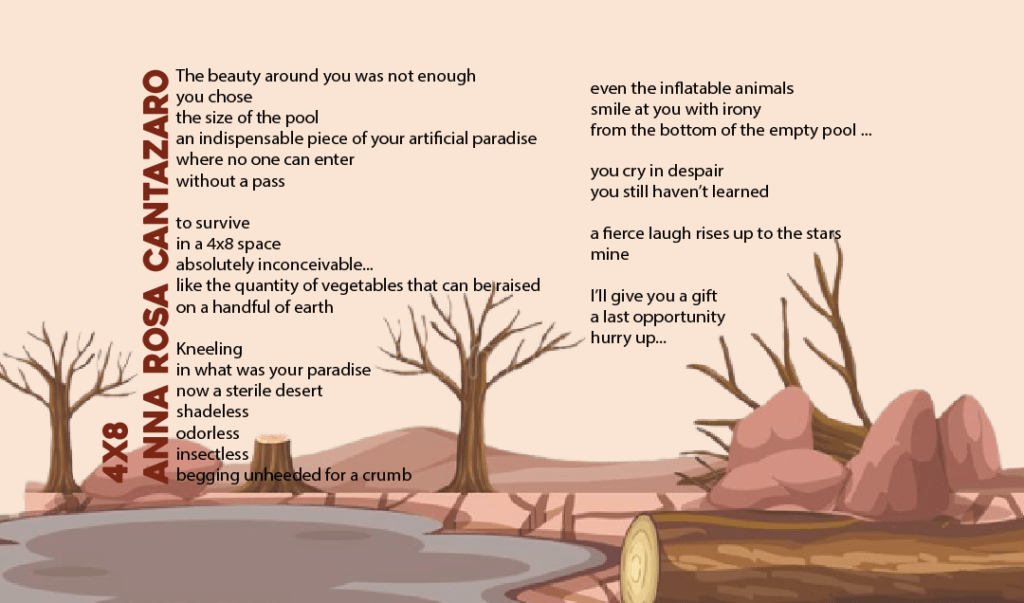

Food sovereignty: we demand agrarian reform!

From Argentina, the MNCI LVC, represented by its youth, invite us to continue waging the struggle for agrarian reform and food sovereignty to the sound of a cumbia, one of Latin America’s most popular musical genres. The paths of struggle through art are also blazed with joy and rebelliousness. Peasant culture possesses a deep fund of musical riches, with each people and continent having its own rhythms. Pump up the volume—it’s our revolution and we want to dance!

For all women—whether peasants, Indigenous people, fishers, landless people, farmworkers, migrants, or women with diverse identities—food sovereignty is essential to existence and to life on the planet. They have tangible solutions to hunger, unemployment, climate change, and social injustice. But there are so many challenges remaining to confront the violence, patriarchy, homophobia, and machismo that continue to poison our territories and societies. Hence the importance of communication, education, art, and culture.
Clara de Carvalho gives us six keywords with which to understand her work: agroecology, agrarian reform, women, food sovereignty.

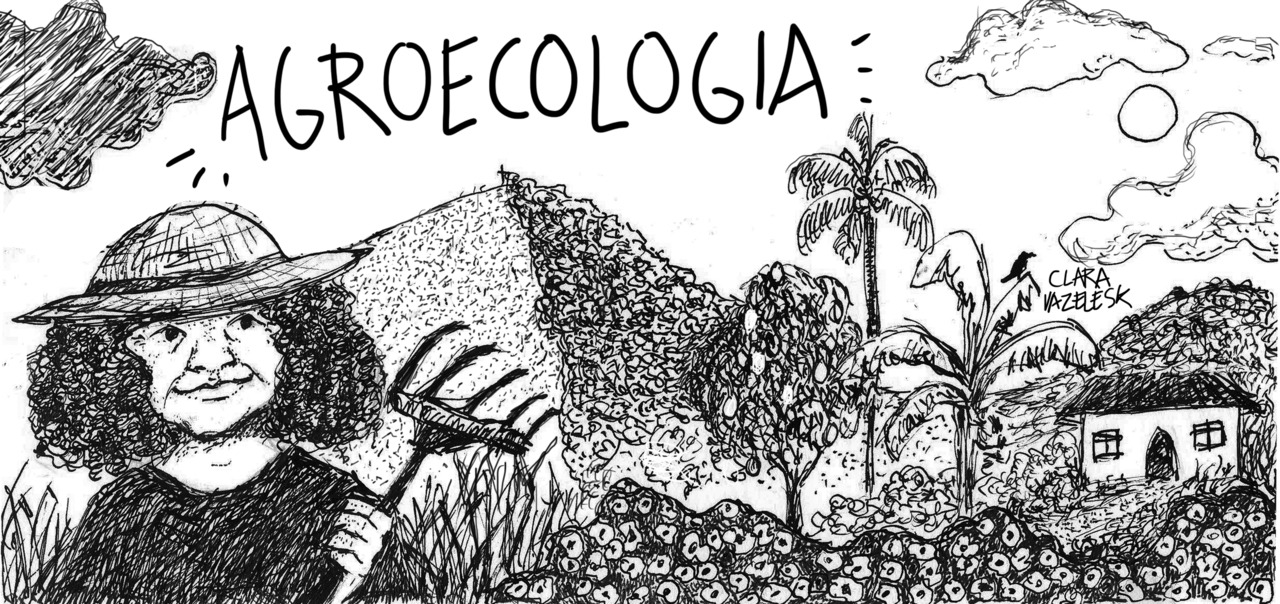
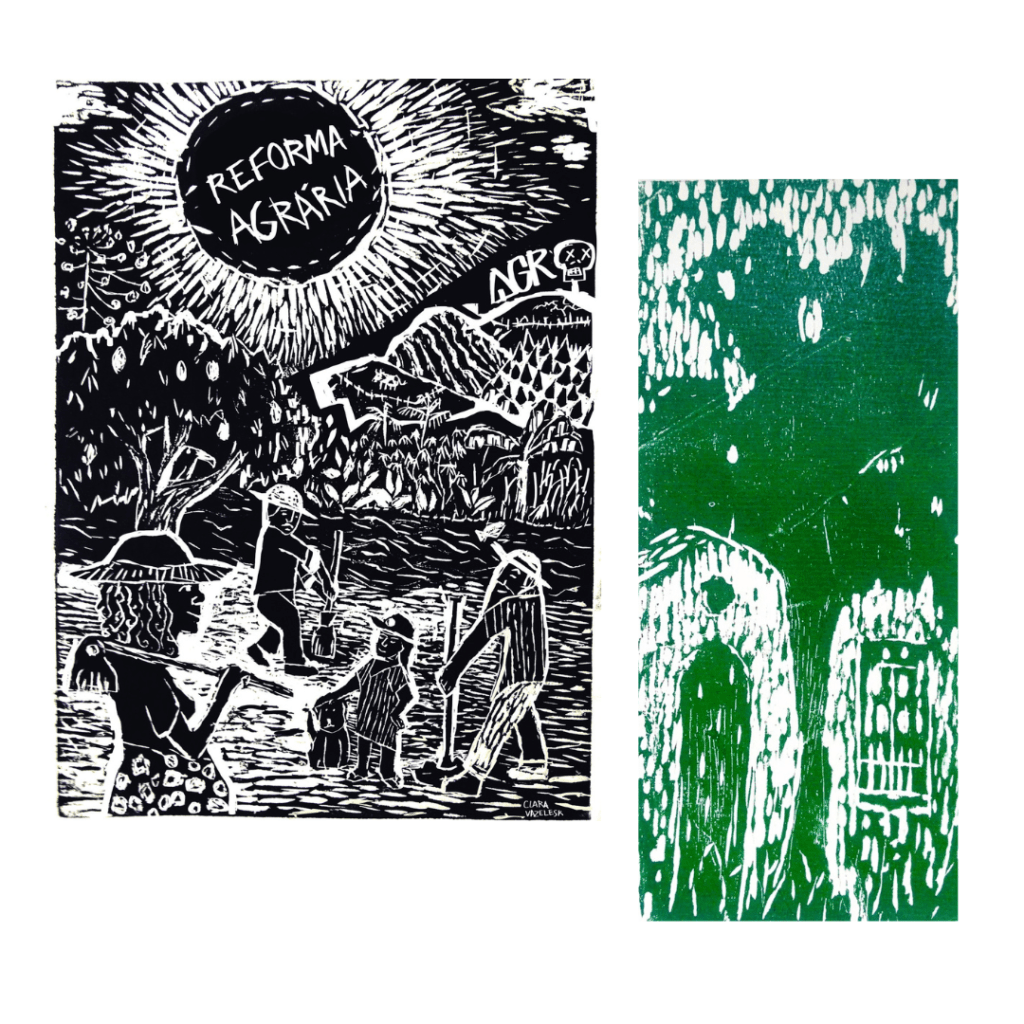
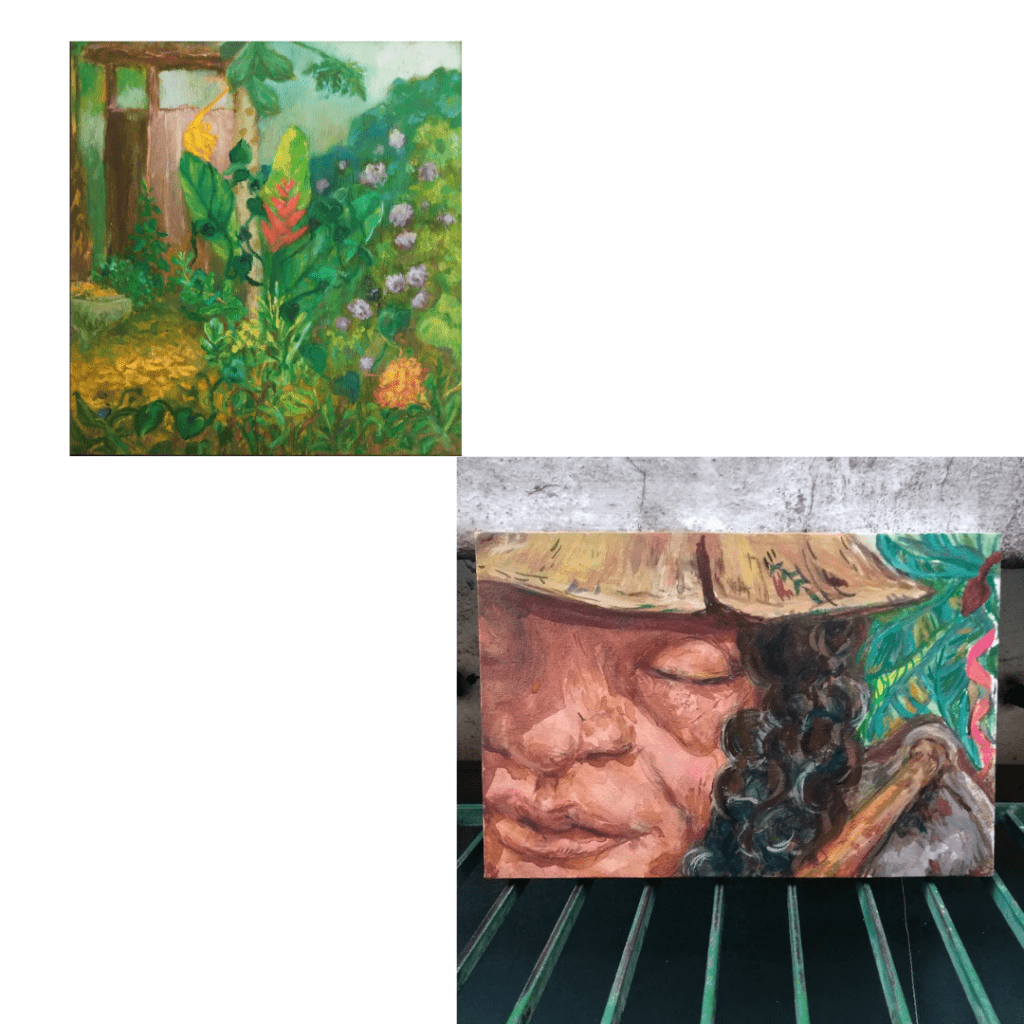

Food sovereignty must include a feminist perspective, and this entails breaking not only with a capitalist agricultural model but also with a patriarchal system that oppresses women and diverse peoples. For several years now, La Via Campesina has been promoting peasant and popular feminism as a collective and diverse approach that we are building together. Find out more here.
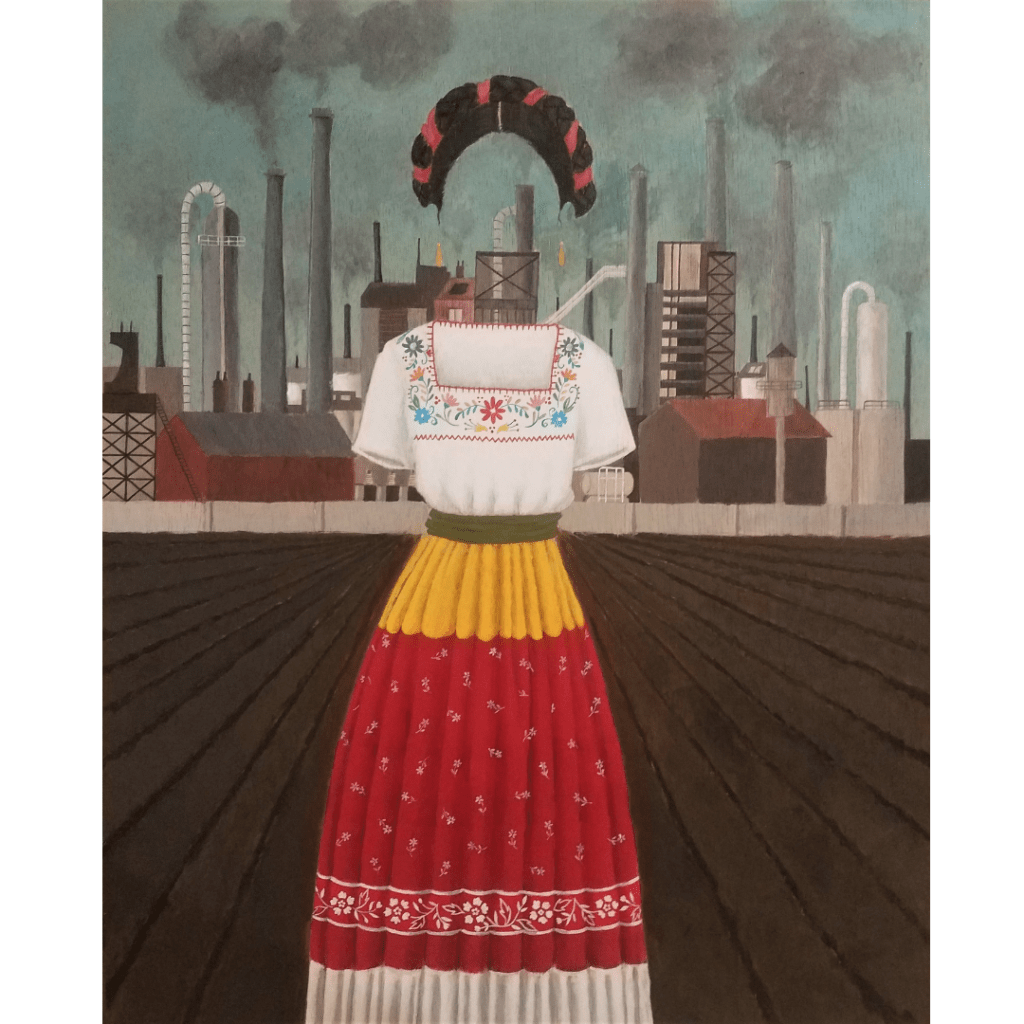
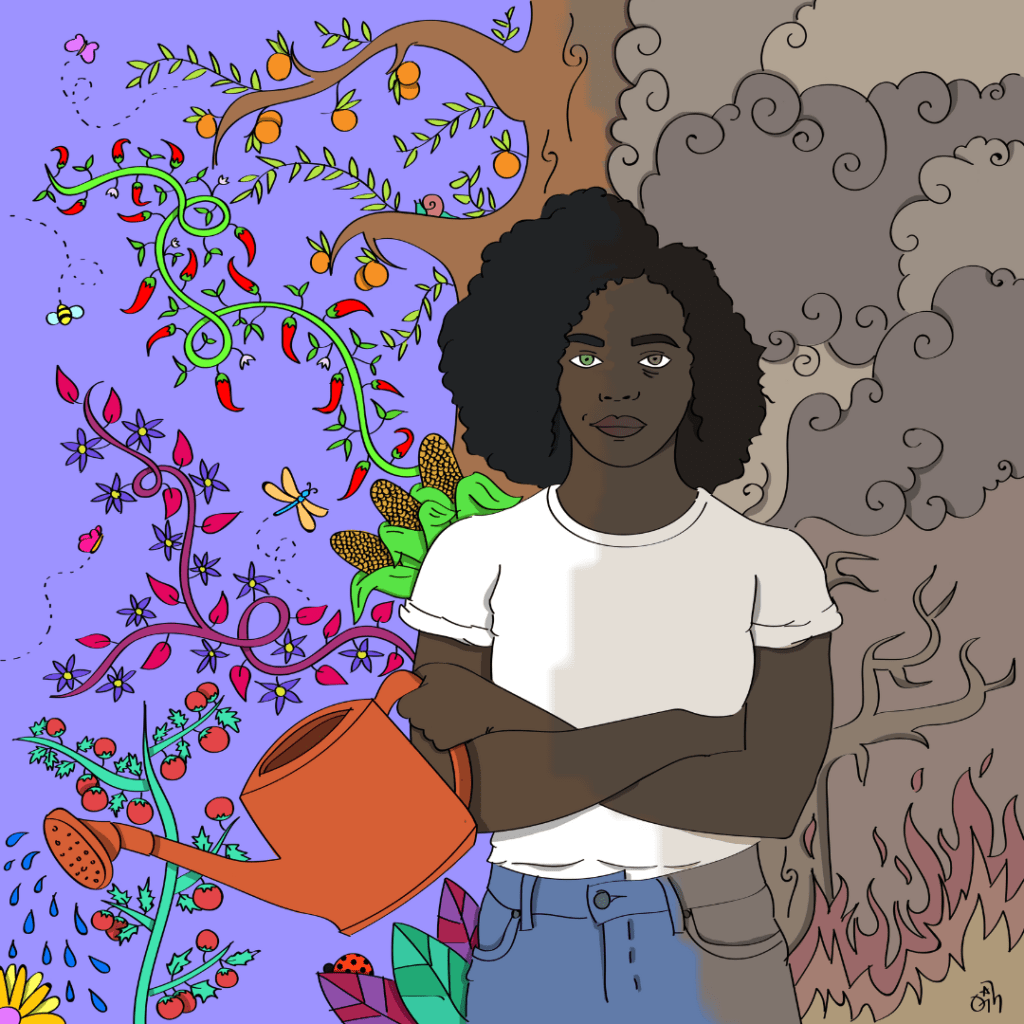
Women are fundamental to La Vía Campesina’s definition of food sovereignty!
Women—whether they are peasants, Indigenous people, people of African descent, migrants, temporary workers, fishers, landless people, or diverse in their identities—daily confront the agribusiness model, capitalism, and extractivism. These models do not guarantee their right to live without violence; their rights to land, water, public health, education, housing, and all the fundamental rights recognized in the UNDROP.

For peasant and diverse women, food sovereignty has restored to them an identity, and this has led them to take bigger steps: to recognize their role in the history of agriculture and their importance to the development of culture and agriculture at the global level; to ensuring the existence of diverse and sustainable food systems.

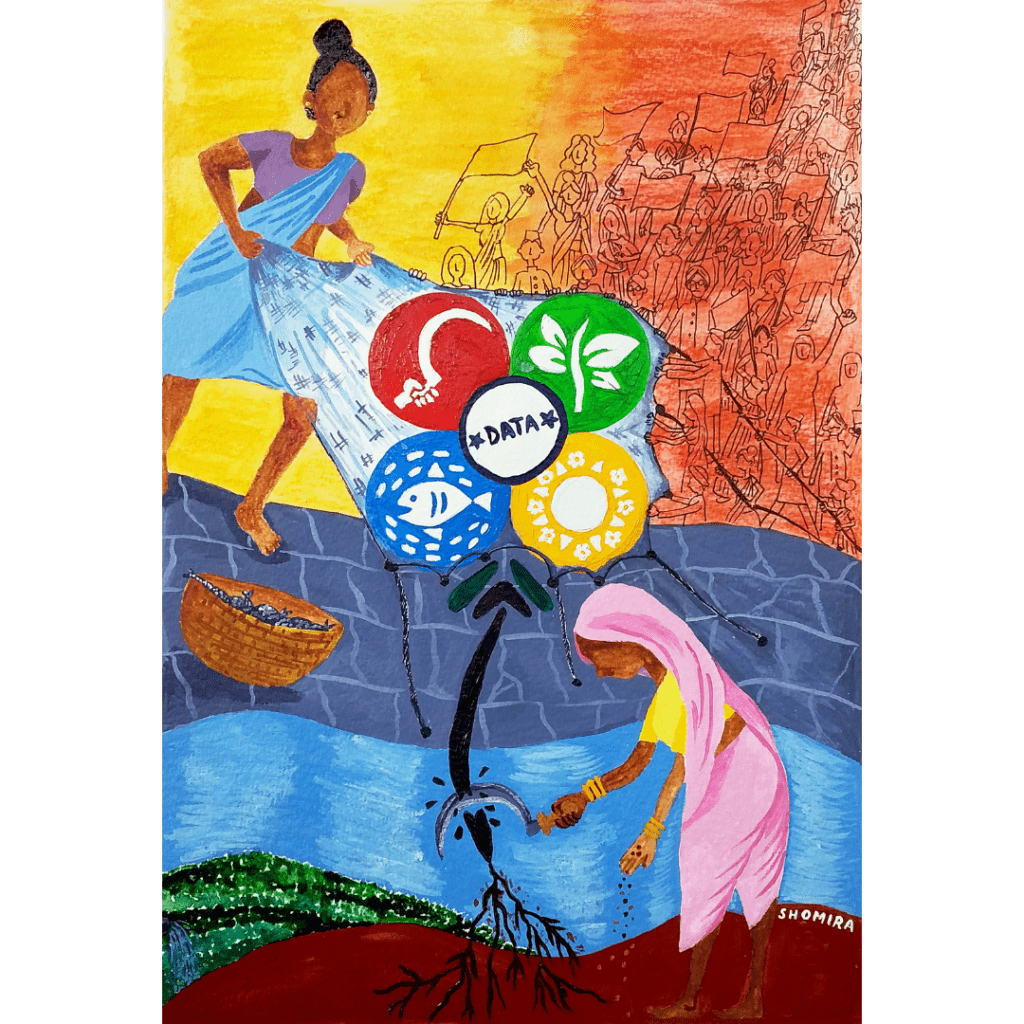
Shomira Sanyal draws on themes such as the challenges and threats posed by industrial agriculture policies and their impact on agrarian reform; land grabbing; climate change, and the criminalization of social movements. The painting depicts two peasant women. One sows seeds with one hand while, with the other, she uses her machete to harvest the symbols of the peasant struggle: land, information, and natural resources. In the background are the silhouettes of hundreds of organized people and flags, representing unity in action.

What is peasant agroecology?
How do I embark on an agroecological process?

In five minutes, Mirna Cruz answers these questions. Spend this time and more with her drawings!
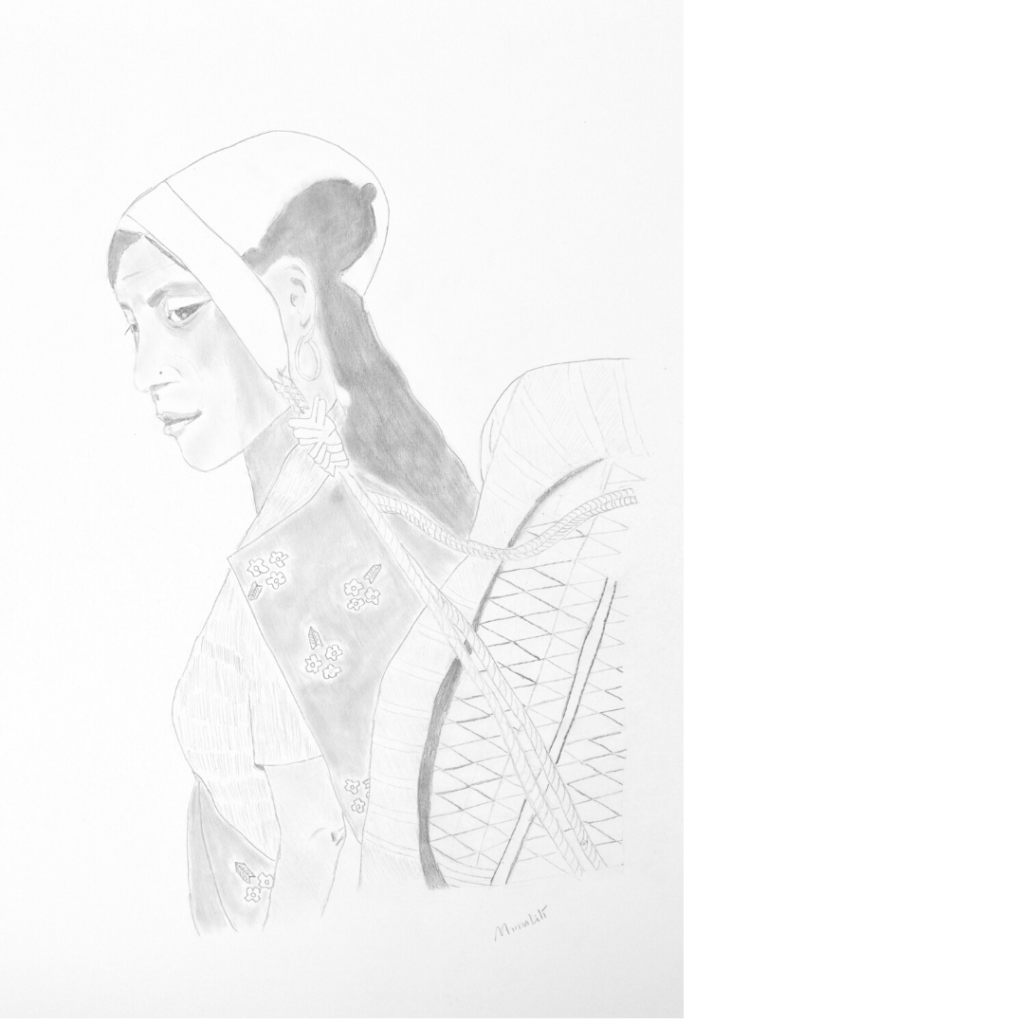


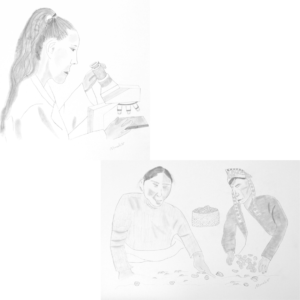
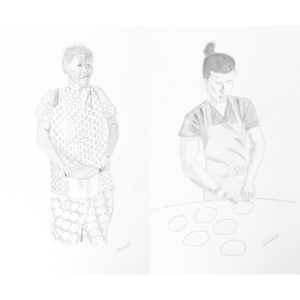
1. What is peasant agroecology?
Peasant agroecology is the only relevant, viable, ethically acceptable path to food sovereignty, uniting the strengths, efforts and capacities of different peoples.
Peasant agroecology is the heritage of rural and ancestral peoples, placed at the service of humanity. It is a way of being, living, and growing and has biological and social foundations. It involves a strong relationship to nature, with a gender focus and a high degree of diversification. It involves the recycling of products and inputs. It depends on autonomy developed through self-sufficiency and through local and regional sourcing of healthy food. It is the people’s response to the inefficiencies and negative impacts of the industrial food system, which is based on land grabbing and the extensive use of agrotoxins.
2. Peasant agroecology is only possible by changing relations of domination and expropriation that oppress women and diverse people
Peasant agroecology is only possible by changing relations of domination and expropriation that oppress women and diverse people. Building agroecology means building the presence of women and diverse people in every space; it means changing relations of power and violence.
3. How do I embark on the road to agroecology?
Around the world, La Via Campesina has over 70 schools and training processes based on popular education. As both a method and a conception, it promotes the creation of a mass movement for agroecology in all rural areas along with the strengthening of peoples’ food sovereignty. All these agroecological training processes are being built and organized by member organizations of La Via Campesina.
4. What IS La VIa Campesina doing as part of its agroecological training strategy?
– Denouncing the capitalist model of rural control through direct struggle, land occupation, public meetings, street closings, fairs, peasant stores, seed exchanges, seminars, congresses, conferences, and festivals, demonstrating the rich fund of peasant culture.
– Publicizing our approach, the peasant agriculture project, and building knowledge, through both formal and informal courses for leaders, activists and the grassroots; exchanges of agroecological experiences in all regions; peasant-to-peasant processes.
– Country-city alliances with students, women, researchers, universities, and the different institutions and organizations promoting peasant agroecology.
5. Where?
– In daily life, through peasant-to-peasant interactions.
– At field schools.
– Through bachelor’s and master’s degrees in rural living.
– Through Latin American agroecological institutes and other peasant training centers.
“We must build peasant agroecology with peasants, with native seeds, and free of agrotoxins and GMOs.”
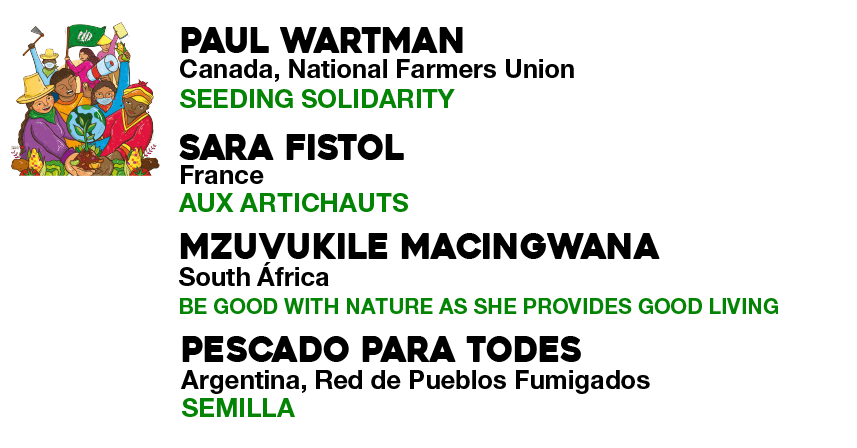
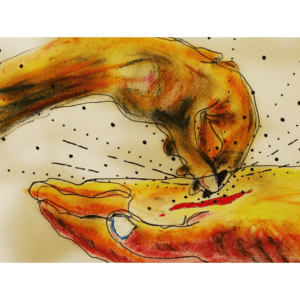
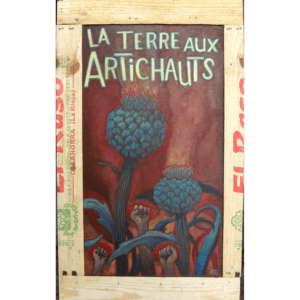
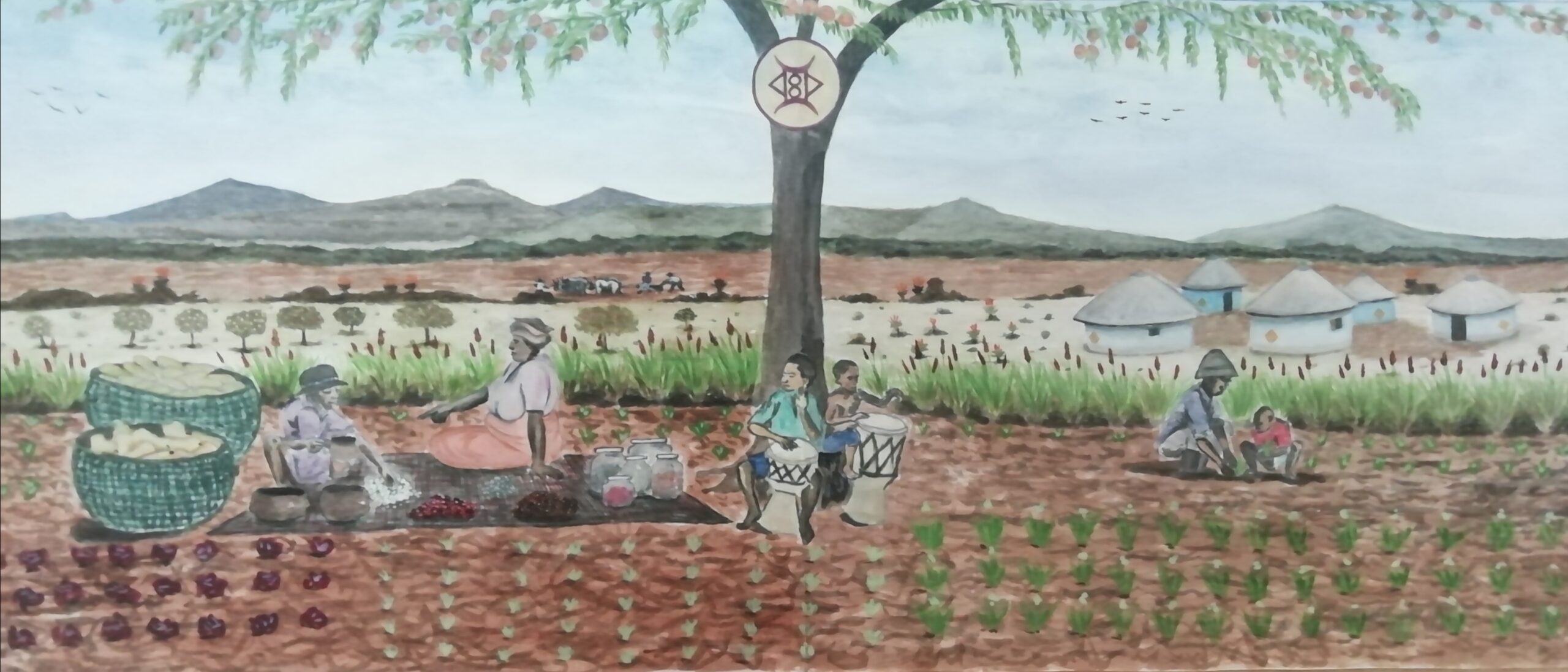
“Peasant seeds are life. They are space, freedom, open hands, the people who protect them. They are wings, grandparents. They are the seeds of peace.

The countryside, the countryside, the countryside, the home of men, women, diversity, childhood,
whom time turns into adults,
where the peasant struggle sprouts and flowers!
The sun is our witness, the moon our ally;
we look at the ground,
oh yes we do,
but only when planting.
We pick the flower.
The sky is the proof,
the solid ground below.
We cultivate peace and friendship,
but only when
seeds are freedom.
Supported by the present,
taught by the past,
we walk our path, night and day,
but only when
equality is the place where this path leads.
We invite you to draw, to take a picture, or to embroider an image of the seeds that have been collected and regained in your community, organization, or region while listening to Fabio’s song. We want to show the diverse colors of food sovereignty. Did you know that in many parts of the world, peasants are imprisoned and criminalized for saving their seeds? Publish your creation on your networks and tag @la_via_campesina_official on Instagram with the hashtags #NoFutureWithoutFoodSovereignty #LVC30Years #PeasantsRightsNOW

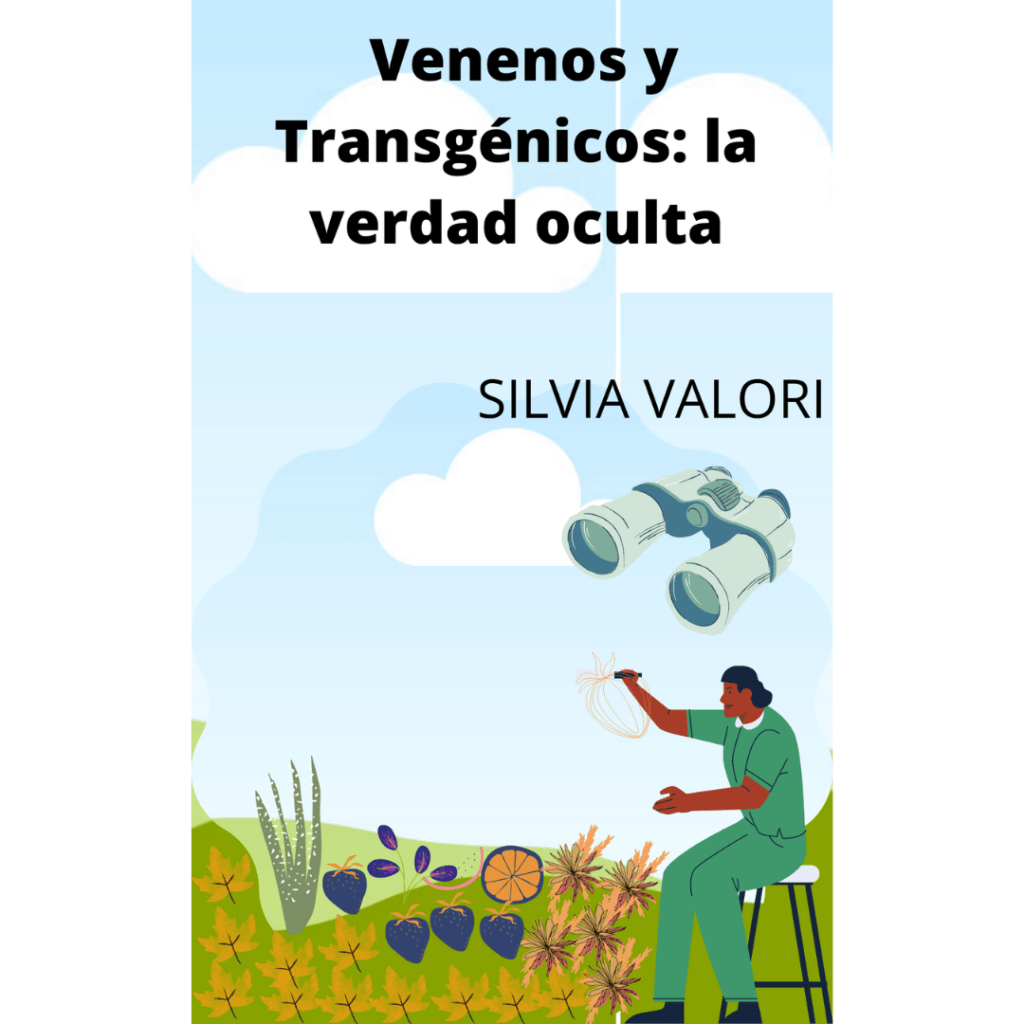
Six transnationals control the world seed market. Genetically modified crops dictate the planting of extensive monoculture with abundant spraying of agrotoxins. They are grown for profit, not to end hunger or guarantee peasants’ rights, much less to take care of the planet. Food sovereignty is bread, solidarity, struggle!


This playlist includes songs by a diverse range of artists. We are sure you’ll enjoy them while going about your daily life in the country, your neighborhood, or your city. You can download the songs and their lyrics for free. Youth, students, activists, peasants, and artists, in collaboration with progressive movements in Indonesia, have been using music to raise awareness among youth and to build alternatives for food sovereignty.
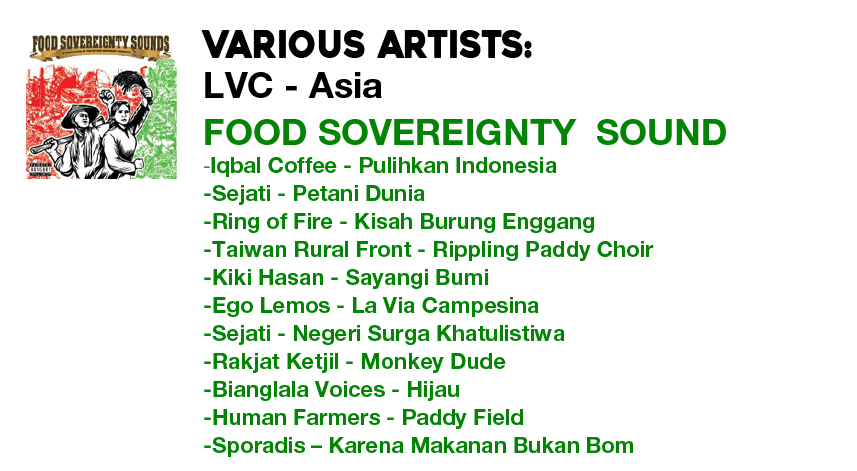





While listening to the song by Zé Pinto, an activist with the Movimento dos Trabalhadores Rurais Sem Terra in Brazil, take out a sheet of paper and create a piece of art with everything you have learned, felt, and experienced during your tour. We would love to hear about your own activities, ideas, and dreams for building the struggle for food sovereignty and more just societies. Use anything you have at hand: seeds, colours, paint, flowers, clay, or pens. Keep globalizing hope! Share your creation with us by sending it to: viacampesina@viacampesina.org

Thank you for visiting this virtual gallery! We hope that it has given you new tools for training, organization, and mobilization. Our deepest thanks go to all the committed artists working in solidarity with our peoples, who use their talents each day to aid struggles for land and disputes over meaning, and to build new narratives in favour of food sovereignty and social justice.
Did you enjoy your visit? Would you like to know more about La Via Campesina? See our latest film.
Leave your comments on our Facebook, Instagram, and Twitter. We’ll be publishing information on each of the participating works for the next few weeks.
Facebook: @ViaCampesinaOfficial
Twitter: @via_campesina
Instagram: @la_via_campesina_official
Website: www.viacampesina.org
Videos, photos & podcasts: tv.viacampesina.org




